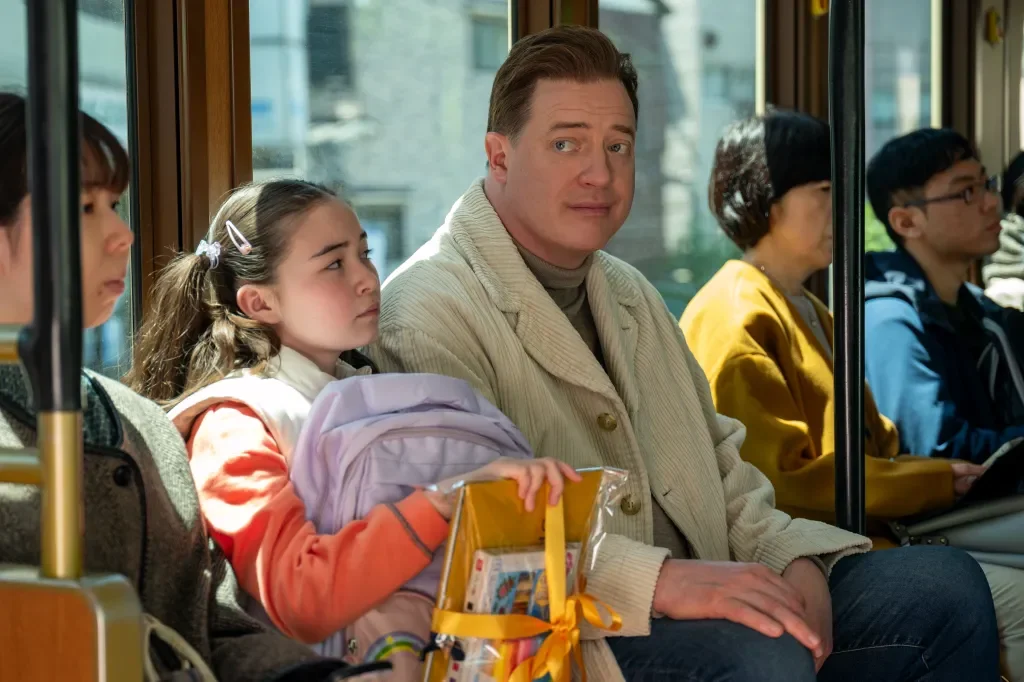Review - Rental Family
Directed by: Hikari
Written by: Hikari, Stephen Blahut
Starring: Brendan Fraser, Takehiro Hira, Akira Emoto
Running Time: 110 Minutes
Rating: 4/5
The Brendan Fraser “comeback” - the “Brendanissance” has never been about one film - it’s about the journey to bring Fraser back into the spotlight; the career he so rightfully deserved. The Whale may have been the spark to bring it all back together - the Festival run, the ovations and the press tour, all culminating in the unbelievable narrative finale - Fraser being crowned with his first Oscar.
This year, Fraser returns back into the Oscar race - but without the darkness of The Whale. He’s embodying something much more profound: a gentle vessel of empathy - the warmth and humanity in his soul carries his newest feature, Rental Family across new heights and gives audiences the most genuine performance in his career.
Hikari’s Rental Family is about the longing for connection - whether it is romantic, familial, paternal/maternal or just platonic - Hikari explores loneliness through the eyes of a man searching for his own happiness. Fraser plays Philip, an American actor drifting along the fringes of Tokyo’s bustling entertainment industry - booking jobs across the most unlikeliest of roles - over-the-top commercials, one-and-done background gigs to even the extravagant Japanese Game Shows. His life is small, unassuming and seemingly content - until he stumbles upon a role of a lifetime - the world of Rental Families - a service in which actors are hired to fill the “voids” in their clients lives. A father for a daughter, a husband for a widow or a journalist for a recluse. This new “job” pushes Philips to a new perspective of the world around him - a challenging high-wire act to balance professional detachment and the emotional weight behind each of his “borrowed” lives.
Hikari’s direction is disarmingly simple, but her empathy radiates through every frame. There are no tricks here, no grand stakes or climactic swells. Instead, Rental Family thrives on quiet observation, the way a laugh slips out at a staged family dinner, or the way Fraser’s broken japanese stumbles across a taut conversation. Maybe it hits too close to home for Fraser - maybe his “acting” is too genuine and the line between acting and reality slowly becomes blurred. Rental Family explores human relationships, generally, in the most simplest of complications - a little surface-level and a little straightforward. Though, behind every frame, Hikari crafts a moving and quietly devastating portrait of human loneliness and the healing touch of human connection.
The film’s gentle and emotional weight is remarkably carried by Fraser’s soulful performance. Philip is not a broken man; he is ever-present, quietly adapting himself to the lives around him. His frame reverberates a powerful and innate kindness that shines through in every scene - his missteps, while comedic, is still grounded with a soft sincerity and light touch. Fraser feels most at-home with this performance; one that is built on empathetic stillness, patience and the love that shatters with the smallest of his gestures. He makes us believe that goodness matters - and is still integral in the world we live in.
Rental Family reflects upon universal pains: absent fathers, partners or fading friendships. The film never once demonizes these faults in their characters and/or even the absurd idea of a rental family service - the film strays away from the idea of a fabricated lie built to heal - Hikari focuses on the power of touch and connection - how much of our lives are performed - and when does our own authenticity cross into the truth?
Rental Family is a beautiful, endearing crowdpleaser — a warm embrace in world that, I must say, needs a lot of love right now. A tender and wonderfully honest film about the intimacies in our lives and the yearning for the biggest of hugs.
Rental Family is scheduled to be released on November 21st.



